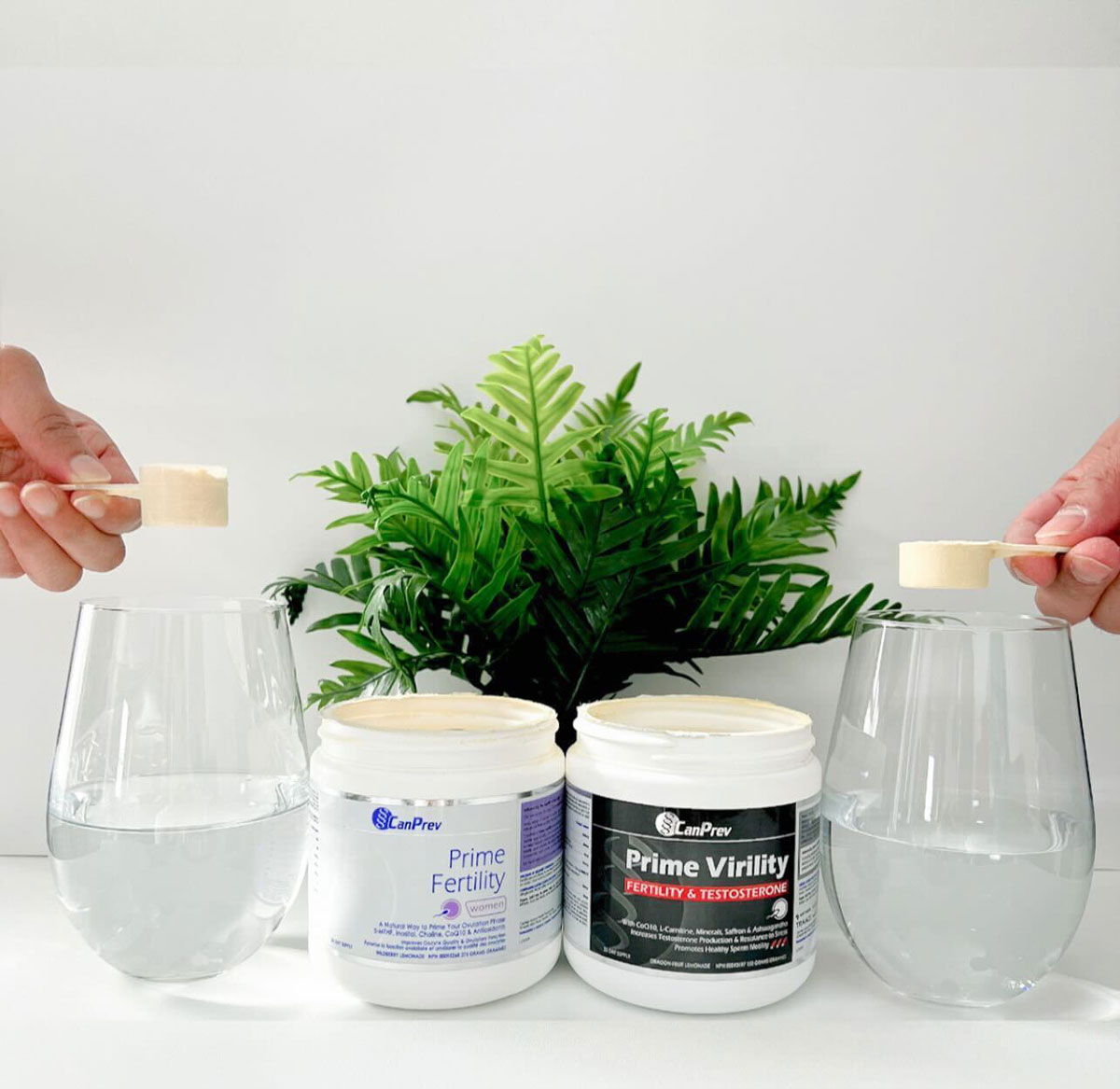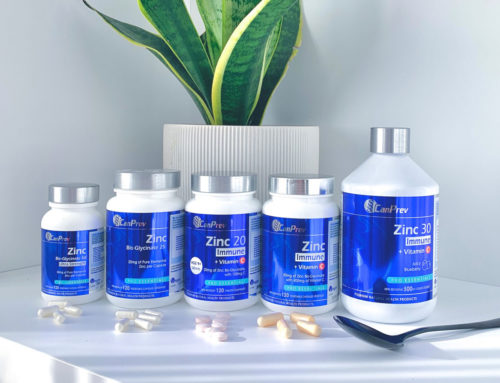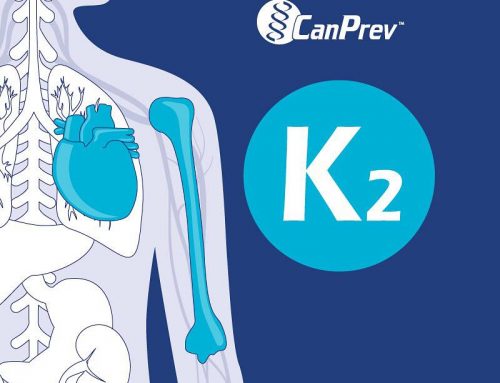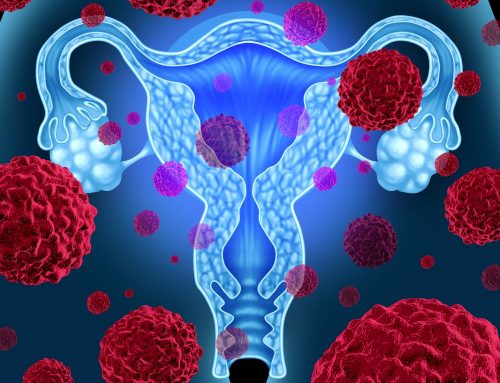Whether you have supported a loved one or been through it yourself, the process of trying to conceive is an emotionally charged journey that looks different for everyone. At the end of the day, it all starts with the basics – healthy egg quality and sperm count.
Like all other cells in the human body, the health of reproductive cells is determined by lifestyle habits and nutrition, and can be further impacted by factors like stress, everyday toxin load, weight changes, hormonal imbalance, genetics and more. Both partners can have profound impacts on improving fertility naturally by nourishing with the right food choices, nutrients, and habits.
Nutrition impacts your fertility
Preparing for conception is one of the body’s biggest and most nutrient-consuming roles. Those preparing for pregnancy are also preparing to share all of their cells’ resources, so ensuring sufficient nutrition is a must.
The saying “you can’t pour from an empty cup” rings true here. If your own body does not receive enough nutrients to keep itself running optimally, sparing these resources to create a new baby interferes with its survival instincts. Once you get the following nutrition habits down pat, your body will be ready when it’s time to share the resources with a growing baby!
Nutrients to prioritize
Choline
Choline is one of the building blocks for a healthy pregnancy. During pregnancy, it’s important to have an adequate supply of choline directed to the placenta, while still having enough for liver and muscle function. Choline is used to make acetylcholine, an important neurotransmitter that makes up the central nervous system. Having sufficient choline helps to support the development of the baby’s brain and spinal cord.
Best dietary sources of choline:
- Egg yolks
- Grass-fed beef
- Organic chicken
- Kidney beans
Antioxidants
Just like every cell in the body, reproductive cells are vulnerable to free radicals. These free radicals are not always harmful, as they are created from many natural processes like exercise and cell metabolism. But external factors (like radiation, inflammation, drugs) can increase the number of free radicals to the point that they outnumber antioxidants in the body.
Over time, this excess of oxidative stress can contribute to decreased egg and sperm quality. Eating an antioxidant-rich diet can help you negate this effect and help to maintain the health of cells.
Best dietary sources of antioxidants:
- Dark leafy greens (spinach, kale, collard greens)
- Berries (blueberries, raspberries, blackberries)
- Herbs & spices (cinnamon, turmeric, oregano)
- Citrus fruits (grapefruits, mandarins)
- Green tea
Vitamin D
Studies show that having optimal levels of vitamin D (at least 1000IU per day) is linked to healthy fertility and pregnancy. Vitamin D is essential for making calcium available for the body to use. In turn, optimal calcium will increase the ability of egg fertilization and sperm mobility – both vitamin D and calcium contribute to fertility success.
Best dietary sources of vitamin D:
- Fatty fish such as tuna, mackerel, or salmon
- Cod liver oil
- Egg yolks
- Butter
Zinc
Zinc is an important player in both egg and sperm development. A deficiency in zinc is linked to smaller egg development, which may negatively influence fertilization and implantation. Zinc deficiency can also cause a decrease in testosterone production, and reduce the chances of healthy sperm development. To optimize fertility, women require a minimum of 8mg of zinc per day and men require 11mg per day.
Best dietary sources of zinc:
- Oysters
- Grass-fed beef
- Sesame seeds
- Pumpkin seeds
- Lentils
Prime nutrition
For an easy no-brainer daily boost of fertility-friendly nutrients, Prime Fertility offers a blend of essential antioxidants like coenzyme Q10 and N-acetyl cysteine (NAC) to help support cellular & hormonal health and reduce oxidative damage to eggs. This formula also includes a therapeutic dose of myo-inositol to encourage better egg quality and ovulation. Plus, the added active folate and choline can help to support the neural health and cellular development of a healthy fetus.
Don’t forget–the nutrition of both partners is important for conception prep! Prime Virility is a convenient way to support male fertility and get essential nutrients like zinc, selenium and vitamin D3, all-in-one formula. This formula is designed to promote healthy sperm motility and testosterone production naturally, with stress resistance herbs such as ashwagandha and saffron.
Foods to limit
Low-fat foods
Compared to proteins or carbohydrates, fats provide the body with more energy because they have twice as many calories per gram. Not having enough healthy fat sources like olive oil, chia or flax seeds, whole milk and yogurt can increase the risk of losing an ovulation cycle and decrease sperm quality. After all, building and releasing an egg each month, as well as producing sperm are processes that require a lot of energy!
Many vitamins and minerals, such as zinc, vitamin D, vitamin A and omega-3 fatty acids are all best absorbed when consumed with a source of healthy fat such as nuts, seeds or good quality grass-fed dairy options.
Sodas and sugar-sweetened beverages
When it comes to fertility, sugar is not your best friend. It’s perfectly fine when consumed in moderation, such as adding honey to your daily tea or coffee. However, many sugar-sweetened sodas, energy drinks, and mixers are filled with high quantities of artificial flavours and syrups.
One study showed that people who consume a daily sugar-sweetened beverage had a more difficult time getting pregnant than their non-sugar beverage-drinking counterparts. When blood sugar remains consistently high, egg quality is negatively impacted, as is common in the case of those with Polycystic Ovarian Syndrome (PCOS). Moreover, high blood sugar levels can get in the way of sperm production, because of reduced testosterone levels, low libido and erectile dysfunction.
Processed foods
If your snack has a long list of ingredients with words you have difficulty recognizing, it’s most likely filled with dyes, preservatives, flavour enhancers and fillers. Unfortunately, these processed foods prioritize flavour, not nutrients. Many of these ingredients, like Blue 1, Red 40, sodium nitrate, high fructose corn syrup, and carrageenan have been linked to increased inflammation, a suppressed or overactive immune system, and fertility complications. When buying packaged foods, it is best to look for ones with a shorter ingredient list and names you can pronounce.
Small changes make big results
Deciding to make fertility a priority in your health journey can be a big step in your life. Adding these fertility-friendly foods and nutrients to your shopping list next time can help you get ready for some big results!
Sources:
Chavarro, J. E., Rich-Edwards, J. W., Rosner, B., & Willett, W. C. (2007). A prospective study of dairy foods intake and anovulatory infertility. Human reproduction (Oxford, England), 22(5), 1340–1347. https://doi.org/10.1093/humrep/dem019
Hatch, E. E., Wesselink, A. K., Hahn, K. A., Michiel, J. J., Mikkelsen, E. M., Sorensen, H. T., … & Wise, L. A. (2018). Intake of sugar-sweetened beverages and fecundability in a North American preconception cohort. Epidemiology (Cambridge, Mass.), 29(3), 369.
Korsmo, H. W., Jiang, X., & Caudill, M. A. (2019). Choline: Exploring the Growing Science on Its Benefits for Moms and Babies. Nutrients, 11(8), 1823. https://doi.org/10.3390/nu11081823
Lawrence, Mark A., and Phillip I. Baker. “Ultra-processed food and adverse health outcomes.” bmj 365 (2019).
Panth, N., Gavarkovs, A., Tamez, M., & Mattei, J. (2018). The Influence of Diet on Fertility and the Implications for Public Health Nutrition in the United States. Frontiers in public health, 6, 211. https://doi.org/10.3389/fpubh.2018.00211
Sharma, R., Biedenharn, K. R., Fedor, J. M., & Agarwal, A. (2013). Lifestyle factors and reproductive health: taking control of your fertility. Reproductive biology and endocrinology : RB&E, 11, 66. https://doi.org/10.1186/1477-7827-11-66








Leave A Comment